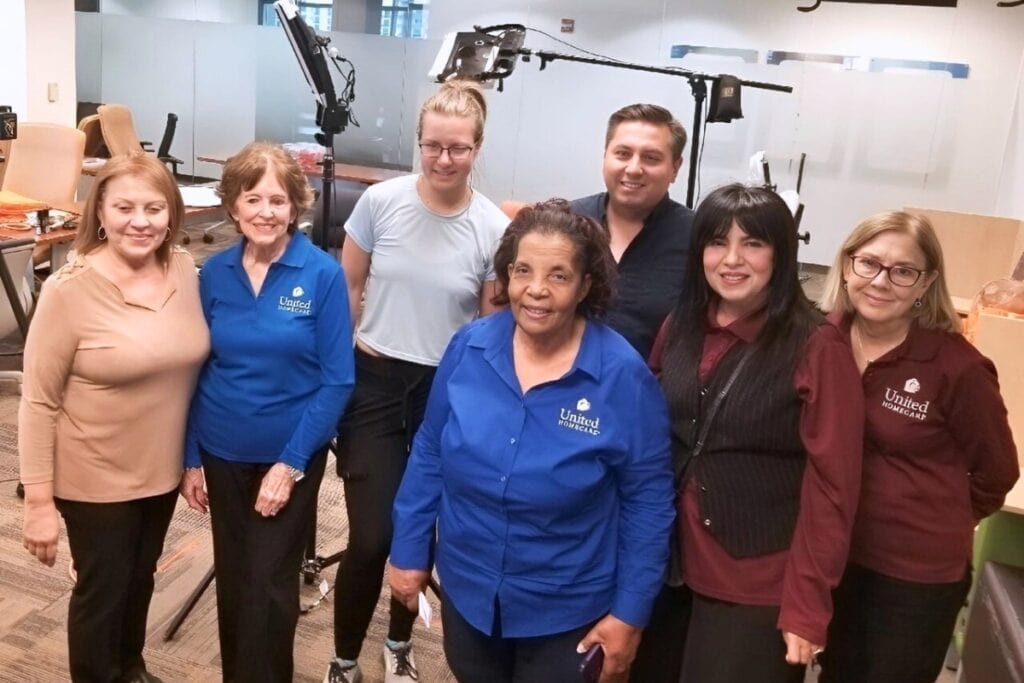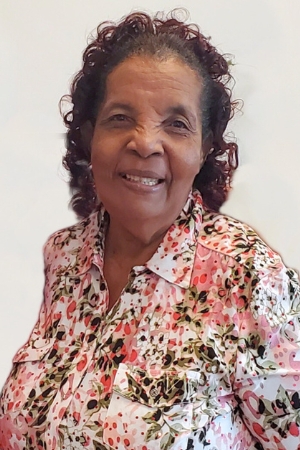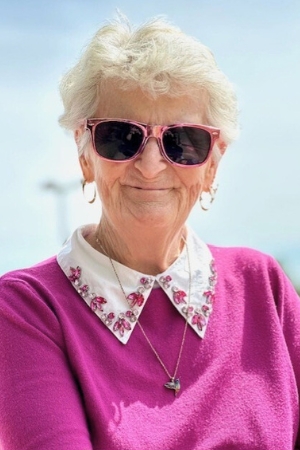
Courtesy of Alina Palenzuela
Key Points
By Ronnie Lovler
Correspondent
What was once considered the “golden years” of retirement are now an extension of the working years for many U.S. adults in their 70s and older.
“I know for myself that I am happier when I am working and happier when I am helping other people,” said Gainesville’s Star Bradbury, 75, author of the book “Successfully Navigating Your Parents’ Senior Years.” “I have a sense of purpose and don’t mind earning a little extra money. All those things add up to keep me working.”
Bradbury is not alone. Janette Campbell, 74, is a former educator who had to leave retirement behind to keep up with her bills.
“I couldn’t afford to pay my mortgage,” she said. “I didn’t want to be left out on the street homeless.“
Campbell got her job with United Home Care in Miami through the AARP’s Senior Community Service Employment Program, or SCSEP.
Mindy Feldbaum, vice president of economic mobility at AARP Foundation, said SCSEP helps place people with non-profits, schools, or public agencies.
“We have direct solutions related to helping people get back to work,” she said. “Economic mobility means putting them on the path to jobs and helping support older workers through their employment journeys.”
The Older Americans Act of 1965, most recently reauthorized in 2020, sanctioned the establishment of the SCSEP to provide job training for older adults.
Campbell now supports her husband and grandson with her part-time job as a community relations specialist.

Dr. Campbell wrote her own “Story of Gratitude,” which won first place in a national contest with over 200 participants. Her story received national attention, including interviews on News Nation and CBS.
In her story Campbell writes about “a tale of financial storms brewing, threatening to engulf our humble abode. Yet, with the combined strength of my husband’s and my Social Security Income, the looming mortgage beast still hungered for more.
“This place beckoned with promises of economic self-sufficiency, where adventurers like me could sharpen their skills, beat unbreakable confidence, and embark on a quest for sustainable employment,” she wrote.
Campbell is like many older adults who find their current job is different from what they did before they retired, post-retirement jobs that economists often call “bridge jobs.”
But some people can keep on doing what they love. JoAnn Wilkes, 75, has coordinated the Displaced Homemakers Program — which helps people transition to the workforce after working primarily in the home — at Santa Fe College for 23 years and can’t imagine leaving that job.

“I love what I do,” Wilkes repeats time and time when she makes a public speech. “I feel like I’m making a difference, and I have no idea what I would do if I were at home.”
In a recent Pew Research Center study, nearly 20% of adults over 65 hold jobs today, compared to 11% in 1987. However, workers over 75 are the fastest-growing age group in the workforce, with twice as many people in this demographic working as in 1987, from 4% to 9% today.
The U.S. Bureau of Labor Statistics projects that by 2032, one in five older adults will be in the labor force. Several factors are driving this, including increasing life expectancy. Many people are outliving their retirement funds and may have to supplement their incomes.
Changing retirement options factor in, with fewer pensions to encourage early retirement. The Social Security system, following 1983 legislation, also gradually raised the age at which people can get full retirement benefits from 65 to 67, which it reached in 2022.
“We all read the statistics on how many people have saved appropriately for retirement, and those numbers are pretty staggering,” said Karen Roberts, a human resources specialist and chair of the advisory council for Encore Palm Beach County, which serves older adults in south Florida.
Roberts says people haven’t saved enough. She pointed to data from GoBankingRates.com showing Florida’s mean annual retirement income is $34,220.
“They also reported that having $1 million in retirement savings would last 17 years, one month, and 13 days in Florida. By comparison, $1 million would last 20 years in West Virginia and only nine years in Hawaii,” she said.
However, as both Roberts and Bradbury point out, staying in the workforce as you age is not always easy because of ageism.
“More and more companies are getting sued by older employees for being forcibly retired or forced out, intentionally under-hiring older candidates, overlooking older employees for promotion, and lots more,” Bradbury said.
Bradbury said Eli Lilly settled an EEOC lawsuit for $2.4 million for discriminating against older applicants for open positions.
Both Roberts and Bradbury insist there are real advantages to hiring mature workers.
“Their expertise, work ethic, desire to transfer their knowledge to younger works and to mentor them,” Roberts said.
Bradbury points to other pros of older workers.
“They are better at problem-solving, have stronger communication skills, and are good team players,” she said. “The joke is we all didn’t grow up with cell phones, so we learned how to speak to each other and have conversations.”
Editor’s note: Ronnie Lovler is a correspondent for Mainstreet Daily News, which published a version of this story.
Suggested Articles
No related articles found.


